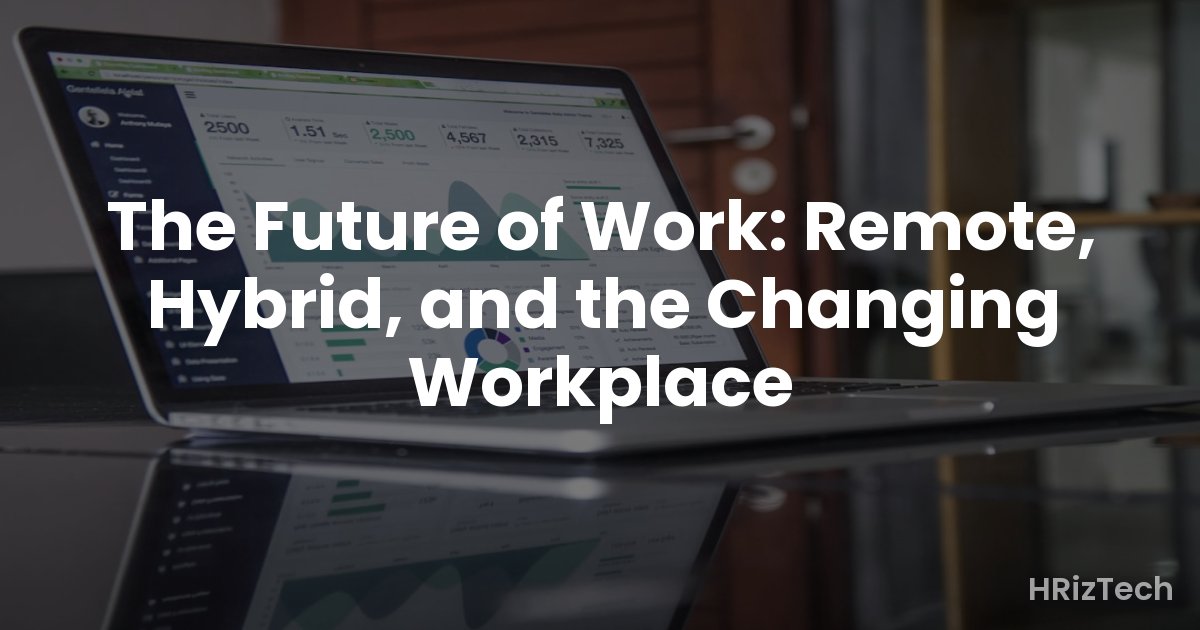The Future of Work: Remote, Hybrid, and the Changing Workplace

The Future of Work: Remote, Hybrid, and the Changing Workplace
- Remote work is here to stay, but with evolving challenges.
- Hybrid models offer flexibility but require careful management.
- The future workplace prioritizes employee well-being and productivity.
- Technology plays a crucial role in shaping the new work landscape.
- Adaptability and continuous learning are essential for success.
The Rise of Remote Work: A Paradigm Shift
The COVID-19 pandemic acted as a catalyst, accelerating the already burgeoning trend of remote work. Millions of employees transitioned overnight from traditional office settings to home offices, kitchen tables, and even coffee shops. While initially met with some skepticism, the experiment proved remarkably successful for many companies. Productivity remained steady or even increased in numerous cases, demonstrating that location isn't necessarily tied to output. This success has solidified remote work as a viable, and often preferred, option for both employees and employers.
Challenges of Remote Work: Beyond the Commute
However, the shift to remote work hasn't been without its challenges. Maintaining team cohesion and fostering a strong company culture can be more difficult when colleagues are geographically dispersed. Effective communication becomes paramount, requiring a conscious effort to leverage technology and establish clear communication protocols. Furthermore, the blurring of lines between work and personal life can lead to burnout if not carefully managed. Employers need to provide robust support systems, including mental health resources and clear boundaries, to ensure employee well-being in a remote environment.
The Hybrid Model: Finding the Right Balance
The hybrid work model, a blend of remote and in-office work, has emerged as a popular compromise. This approach allows employees to enjoy the flexibility of remote work while still benefiting from the collaboration and social interaction that an office environment provides. Many companies are adopting a flexible hybrid model, allowing employees to choose the work arrangement that best suits their needs and work style. This approach can boost morale and attract top talent who value work-life balance.
Managing a Hybrid Workforce: Strategies for Success
Successfully managing a hybrid workforce requires careful planning and execution. Companies need to invest in robust communication technologies, ensuring seamless collaboration between remote and in-office employees. Equitable access to resources and opportunities is crucial, preventing remote employees from feeling isolated or overlooked. Regular in-person team-building activities can help strengthen relationships and maintain a strong company culture. Clear policies and expectations regarding communication, availability, and in-office days are essential for avoiding confusion and conflict.
The Future Workplace: A Focus on Well-being and Productivity
The future of work is less about location and more about creating a work environment that prioritizes both employee well-being and organizational productivity. This means fostering a culture of trust, autonomy, and flexibility. Companies are increasingly recognizing the importance of investing in employee development, providing opportunities for professional growth and skill enhancement. Mental health support is becoming a critical component of comprehensive employee benefits packages.
The Role of Technology: Enabling the Future of Work
Technology plays a pivotal role in shaping the future of work. Collaboration platforms, project management tools, and communication technologies are essential for facilitating seamless teamwork and communication across geographical boundaries. Artificial intelligence (AI) and machine learning (ML) are transforming workflows, automating tasks, and improving efficiency. Data analytics provides valuable insights into employee productivity, well-being, and overall organizational performance, enabling data-driven decision-making.
Adaptability and Continuous Learning: Keys to Success
In this ever-evolving landscape, adaptability and continuous learning are essential for both employees and employers. Employees need to develop strong digital literacy skills and embrace new technologies. They also need to be proactive in seeking opportunities for skill development and professional growth. Employers must adapt their management styles, embrace flexible work arrangements, and invest in technologies that support a dynamic and productive workforce.
The future of work is not simply about remote versus in-office; it’s about creating a work environment that is engaging, supportive, and conducive to both individual and organizational success. It's about finding the right balance between flexibility, collaboration, and productivity, ultimately leading to a more fulfilling and productive experience for everyone involved.
Comments
No comments yet. Be the first to comment!